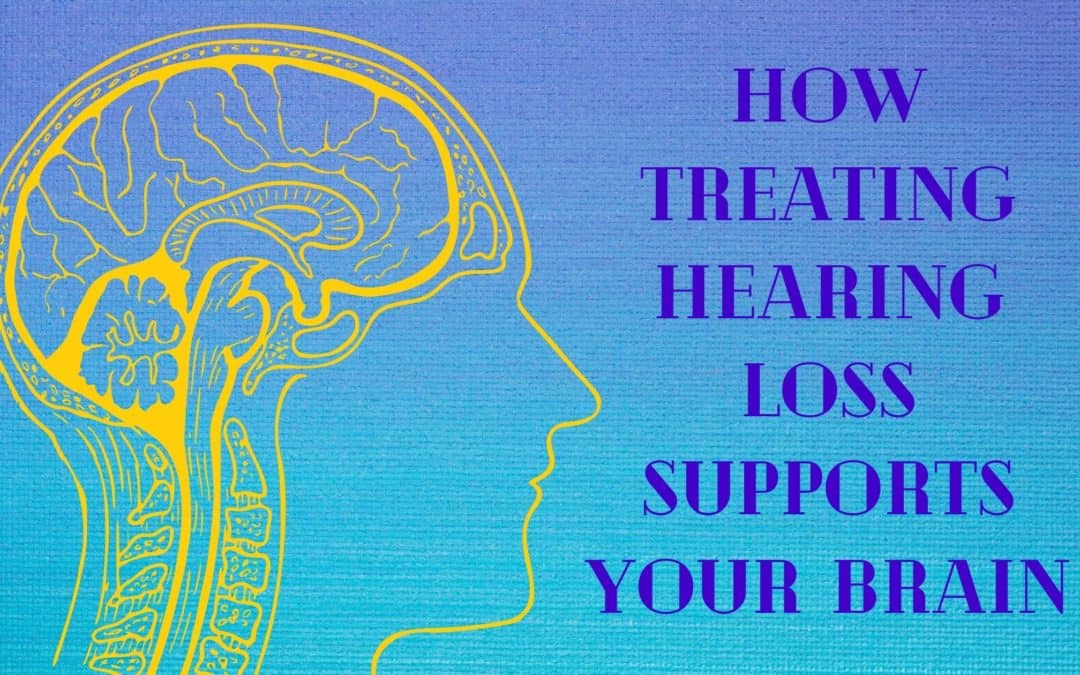Hearing loss not only happens in the ears, but the brain as well. The ears and the brain work to absorb and process sound, enabling us to hear and understand what we hear. Hearing loss, one of the most pervasive chronic medical conditions today, has multifaceted effects. In addition to impacting the ears, hearing loss also impacts brain function(s). Treating hearing loss, as early as possible, is critical for both hearing and brain health.
Hearing Loss & Cognitive Decline
Extensive research highlights a link between hearing loss and cognitive decline. Both of these medical conditions impact older adults disproportionately:
- 1 in 8 people have some degree of hearing loss
- 25% of adults 65-74 have hearing loss
- 50% of adults 75 and over have disabling hearing loss
- Nearly 6 million people have Alzheimer’s
- 1 in 10 people age 65 and older has Alzheimer’s
Several studies analyze how these conditions overlap and are correlated. This includes a significant study, published in 2019 in the Journal of the Alzheimer’s Association.
Researchers collected and evaluated data on hearing loss and cognitive decline for 10,107 people, ages 62 and older. Data was gathered for an 8-year period for participants who did not have cognitive issues at the onset of the study. Findings showed that cognitive decline was:
- 30% higher among people with mild hearing loss
- 42% higher among people with moderate hearing loss
- 54% higher among people with severe hearing loss
These numbers not only reveal a significant correlation but also that the severity of hearing loss increases the risk of cognitive decline. How exactly does this happen?
Impact of Hearing Loss on the Brain
The process of hearing involves specific areas of the brain including the auditory cortex. To better understand how hearing loss impacts these components, researchers at the University of Colorado developed an insightful study. Published in 2015, the study specifically looks at how the brain responds to hearing loss. Researchers carried out electroencephalographic (EEG) tests on people with different degrees of hearing loss. EEG testing involves placing small sensors on the scalp, these sensors are then able to record brain activity in response to stimuli.
In this study, participants were exposed to sound stimulation (recorded speech) and researchers assed their brain activity which was captured by the EEG recordings. Researchers found that compared to adults without hearing loss, people with hearing loss experienced:
- less activity in the hearing portion of the brain
- brain reorganization in areas that process visual patterns
This inactivity and reorganization describe how neural pathways are weakened as a result of hearing loss. Others areas of the brain then try to compensate for this inactivity which leads to cognitive overload and fatigue. As Dr. Sharma, one of the authors of the study, describes, “the hearing areas of the brain shrink in age-related hearing loss. Centers of the brain that are typically used for higher-level decision-making are then activated in just hearing sounds. These compensatory changes increase the overall load on the brains of aging adults”. This can lead to cognitive decline and the development of conditions like dementia.
Benefits of Treatment on Brain Health
Treating hearing loss has countless benefits on overall health and wellness. In addition to improving hearing ability, treatment also supports brain health. Hearing aids are the most common way that hearing loss is treated. These devices provide ample hearing support which alleviates symptoms, maximizes hearing capacity, and supports the brain. Studies show that hearing aids improve brain function(s), decelerating cognitive decline:
- 2020 Study Published in Science Daily: researchers at the University of Melbourne examined how hearing aids impact the brain. The study involved looking at the hearing and cognitive abilities of nearly 100 participants (ages 62-82) before using hearing aids as well as 18 months after using hearing aids. Researchers found that:
- “97% of participants showed either clinically significant improvement or stability in executive function (mental ability to plan, organize information and initiate tasks)”
Treating hearing loss strengthens communication, relationships, social engagement, and brain health. A simple way to prioritize your hearing and brain health is to schedule an appointment for a hearing assessment!

